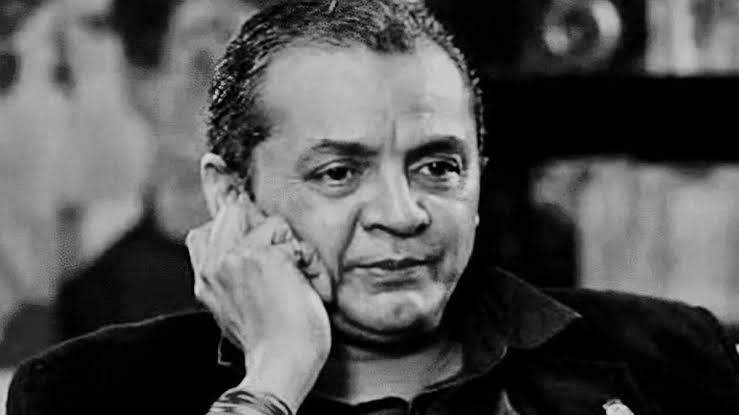Sankarshan Thakur: The Journalist Who Saw Kashmir Beyond The Headlines
Sankarshan Thakur
Sankarshan Thakur wandered through the towns and villages of Kashmir with a single purpose: to listen.
He did not arrive as a judge or a distant observer. He arrived with patience, empathy, and the belief that the stories of ordinary Kashmiris grappling with grief and gloominess needed to be heard.
On the morning of September 8, 2025, in a Gurugram hospital, Thakur died after a months-long battle with lung cancer. He was sixty-three.
His departure left a void in Indian journalism and in the hearts of those whose lives he chronicled with care and depth.
As editor of The Telegraph, Thakur earned a reputation for sharp political analysis and clear, human-centered reporting. His coverage of Kashmir, a region often defined by conflict, stood apart for its sensitivity and honesty. He avoided the sensational storytelling and instead sought the voices that too often went unheard.
Born in Patna in 1962, to a father who was both a journalist and a politician, Thakur had an early taste for inquiry. His academic journey took him from St. Xavier's in Patna to Hindu College at Delhi University, where he earned a degree in political science in 1983.
By the next year, he had begun writing for Sunday Magazine, and from there his career stretched across the fault lines of Indian politics and society.
In 1999, he covered the Kargil conflict. He witnessed flashpoints from India's political heartlands to hinterlands. Yet Kashmir remained close to his heart.
He stayed in local homes, sat with families affected by strife, and listened without judgment. His reportage moved beyond politics to reflect the lived reality of people under strain.
Neem Akhter, a longtime friend and political commentator, remembered Thakur as a rare voice in reporting Kashmir. Akhter recalled Thakur's visits during his detention and the kindness he extended to his family.“His understanding of the region went deeper than most,” he said.
Thakur's work did not stop at the news pages. In essays such as In Kashmir: It's Been a Month, he documented the despair that followed the 2019 lockdown and internet shutdown. In The Passing of Kashmiriyat, he traced the slow erosion of traditional values and trust, a shift many found hard to articulate but impossible to ignore.
Colleagues remember him for a sharp intellect and generous spirit. Amitabh Mattoo, a political scientist and academic, said,“We often disagreed, sometimes fiercely, but I never missed reading him. His writing had a rare brilliance, humility, and honesty-qualities that made even his sharpest critics pause and reflect.”
Indian journalism, Mattoo added, has lost one of its most courageous voices,“and those of us who knew him have lost a generous and spirited friend”.
Sankarshan Thakur with Amitabh Mattoo and others.
Iftikhar Gilani, a senior Kashmiri journalist with decades of experience, called Thakur's legacy one of integrity and commitment.“His work on Kashmir stood out for its depth, sensitivity, and honesty,” Gilani said.“He brought to light voices often overlooked. His legacy will continue to inspire journalists and readers alike.”
Thakur shaped young journalists with care and precision. He could tear down a story idea with merciless logic and rebuild it with generosity and insight.
A colleague recalled how in 2019 he praised a folktale book, saying,“For its sheer thought and effort, this is a stellar act. In an age of haste, the author chose to pause and delve into the past to uncover treasures for our future.”
His affection for life extended beyond the newsroom. Thakur loved meals shared with friends, where laughter and insight flowed in equal measure. He traveled widely, yet carried Kashmir in his thoughts, chronicling its people's pain, dignity, and hopes with deep empathy.
Chief Minister Omar Abdullah described him as one of the“rare journalists” who traveled extensively in Jammu and Kashmir,“and actually listened. He didn't judge.”
Former Chief Minister Mehbooba Mufti remembered Thakur as a gifted writer, rare for his deep understanding of Kashmir's complex nuances.“Deeply perceptive and always with his ear to the ground, he was one of the few journalists who never sacrificed the truth,” she said.
Thakur's reporting brought political realities into view by showing the human lives behind them. His books, including Subaltern Saheb: The Making of Laloo Yadav, Single Man: The Life and Times of Nitish Kumar, The Unmaking of Bihar, and The Brothers Bihari, remain benchmarks of political insight woven with narrative elegance.
He earned the Prem Bhatia Award for excellence in political journalism in 2001 and the Appan Menon Fellowship in 2003 for a book project on Kashmir.

Legal Disclaimer:
MENAFN provides the
information “as is” without warranty of any kind. We do not accept
any responsibility or liability for the accuracy, content, images,
videos, licenses, completeness, legality, or reliability of the information
contained in this article. If you have any complaints or copyright
issues related to this article, kindly contact the provider above.
Market Research

- Gas Engine Market Analysis: Strong Growth Projected At 3.9% CAGR Through 2033
- Daytrading Publishes New Study On The Dangers Of AI Tools Used By Traders
- Excellion Finance Launches MAX Yield: A Multi-Chain, Actively Managed Defi Strategy
- United States Lubricants Market Growth Opportunities & Share Dynamics 20252033
- ROVR Releases Open Dataset To Power The Future Of Spatial AI, Robotics, And Autonomous Systems
- Blackrock Becomes The Second-Largest Shareholder Of Freedom Holding Corp.



















Comments
No comment